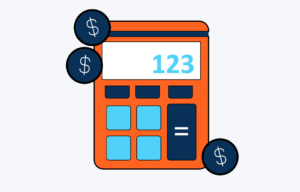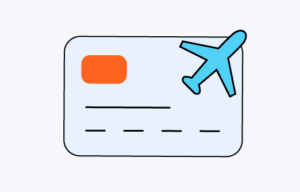Table of Contents
Pay Off Debt
Because you’re probably reading this while you’re in the beginning stages of getting your money under control, you likely still have some debt that is weighing you down.
When you choose to automate your extra money towards paying off your debt, you’re actually deciding to start saving sooner too. That’s because the sooner you’re out of debt, the sooner you can begin to save more.
If you have multiple debts, make sure you prioritize paying them off in order of highest interest rate to the lowest interest rate.
Grow Your Emergency Fund
An emergency fund is a must-have for people who are building their wealth. You need to have some money set aside to cover any unforeseen emergencies to keep you from going into debt when a crisis pops up – and one always pops up sooner or later!
You can read Emergency 101: Ultimate Guide to Emergency Funds to understand the fundamentals of why they’re important and how to save for them. But for our purposes here, adding to your emergency fund has the same result as paying down debt quicker: It gets you ready to start seriously saving sooner.
Emergency funds are generally kept where they are easily accessible, usually in a savings account or a money market. Both of these are good choices, and it’s easy to set up each with automated deposits.
Establish Or Increase Your Investments
If your debt is gone and your emergency fund is established, a good choice for you is to establish or increase your investments.
There are two main scenarios for which people save their money.
Retirement Savings
Ask if your employer offers a retirement savings plan at work, such as a 401(k), 403(b), 457, Thrift Saving Plan, or another plan; you may be eligible for a retirement savings plan matching contribution. Not all workplaces have retirement savings plans, and those that do have them don’t always match, but it’s definitely worth asking your benefits department about it.
If your employer doesn’t offer a matching plan, you can always go a different route. An IRA, either a traditional or Roth, would be a great place to put your money. Make sure you familiarize yourself with the annual IRA contribution limits. You could also choose to invest in stocks, bonds, or any number of other places.
College Savings
A 529 is a college savings plan that allows you to start saving money each month for higher education. You can read about the many reasons to love 529 college savings plans, but a low-maintenance investment is one of the most important.
You set your money to be automatically deducted from your checking account or even directly from your payroll. Then don’t worry about it. The account management is overseen by one of two groups: people from the state treasurer’s office or people from an independent financial group.
Big Item Savings
If you own your car or home, you know that it’s only a matter of time before something needs to be replaced. Consider saving your extra budget money for these big-ticket items, so you’re better prepared when they come.
You can automatically direct money to your bank savings account or a money market account for this. You could also choose a no-penalty CD to hold this money too. They typically have a higher interest rate than banks, and some penalize you for early withdrawal.
If you decide to go with a CD, double-check that there is no withdrawal penalty, and also check to see if they need a minimum balance to open one. Some have a lower one and others are higher, so make sure you have enough money to open one.
Save For A Reward
Often, when people get going with their budgeting, they get so focused on meeting their financial goals and putting money away that they forget to enjoy themselves. If you’re working that hard for your money, it’s okay to occasionally spend a little on yourself.
We’re not talking about blowing it – we’re talking about saving for an annual vacation or setting money away for your holiday spending. You can direct the extra money to go right into your savings account and earmark it in your budget for those purposes.
The promise of a reward can help you stay motivated while you keep other parts of your spending strictly in line. Don’t underestimate your need to enjoy the fruits of your hard work every once in a while.
Charitable Donations
Much like with rewards, it’s easy to forget about giving to charitable organizations while you’re trying to control your spending and get yourself on a solid budget. However, some studies say that giving to others is critical for their own sense of fulfillment, family bonding (people often give to causes they have personal experience with), and community connection.
Beyond the emotional reasons to give charitably, there are tax benefits too. You can often get a deduction on your tax return for charitable giving. Check the IRS rules on charitable contributions to ensure you have the necessary paper trail to claim your charitable deductions come tax time.
It’s essential to thoroughly vet any charity to which you choose to donate. There are a lot of good ones out there, but there are a lot of scams too. You can use sites like Charity Navigator or CharityWatch to make sure your money is going to a legitimate charity that will put it to good use. From there, you can follow up with individual charities you like to determine whether they take automated payments and how to set that up.
Bottom Line
The key to using your extra budget money wisely is to automate it: direct it to a place that you choose before you have a chance to spend it. You’re working hard to get yourself in a good financial position and monitor all of your spending. Don’t let a little extra money knock you off course!





